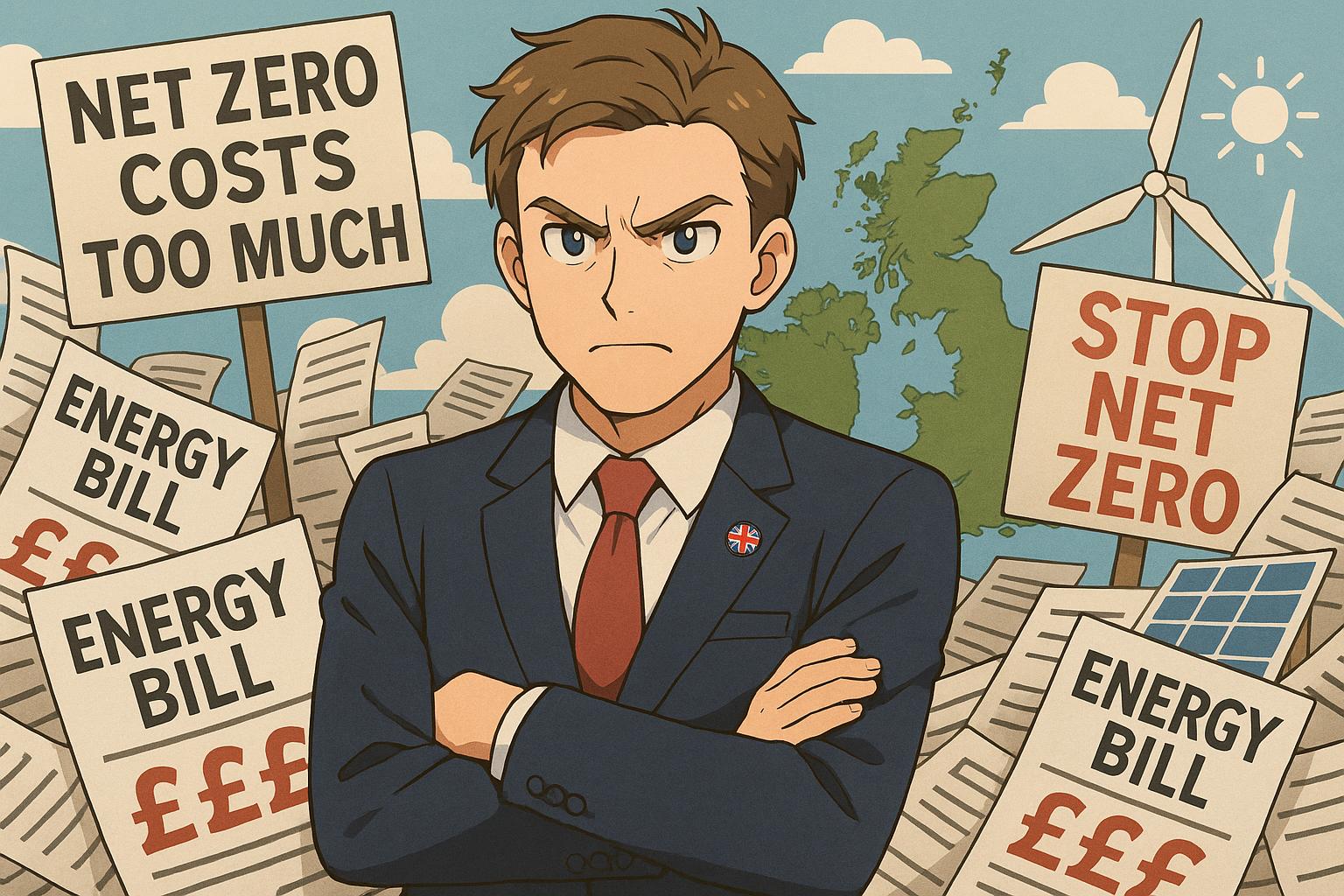The political landscape in the UK has been significantly shaken, with growing discontent over the new government's proposed Net Zero policies grabbing headlines and spotlighting rising tensions within the Labour party. While the administration champions an agenda focused on renewable energy and reducing carbon emissions, critics argue that this approach is detrimental to the very people it claims to advocate for. The economic fallout from these policies, particularly in light of soaring energy prices and inflation, has led to an increasing appetite for alternatives among voters.
The situation is stark: Ofgem’s recent announcement has seen the price cap rise by 6% in 2025, pushing the average annual household energy bill to an eye-watering £1,849. This hike, a staggering 9% increase from the previous year, is compounded by projected inflation rates of up to 3.7%, according to the Office for Budget Responsibility. For larger families, bills can soar as high as £2,628, making the cost-of-living crisis a pressing concern for many Britons.
In this context, a reformist political movement aimed at countering the government's "green dogma" is gaining traction. Critics argue that the insistence on transitioning to renewables through wind technologies and ambitious carbon capture initiatives—such as the newly established Great British Energy with an £8.1 billion budget earmarked for carbon capture and storage (CCUS)—is misguided. They contend that despite hefty investments, these strategies are unlikely to lower energy bills for consumers. Even the chief executive of British Gas has voiced skepticism, stating that the current renewables policy “will definitely not reduce the price” for consumers.
Simultaneously, regional election results underscore the shifting political currents. A reformist party has made significant inroads, seizing control of Lincolnshire County Council and winning mayoral elections in both East Yorkshire and Lincolnshire. Their message, centred on dismantling ambitious Net Zero targets and promoting affordable energy solutions, resonates with voters who feel abandoned by the traditional parties. Polling indicates that, while a notable portion of the population may support the principles of Net Zero in theory, when faced with the reality of rising living costs, their priorities shift decisively towards economic relief.
The recent proposal to expedite CCUS deployment in the UK has met with resistance. The current legislative framework not only mandates this technology's incorporation into energy planning but does so with significant financial backing and taxpayer support. Critics argue that this reliance on a largely unproven technology, with real-world capture rates often falling short of promises, is unwarranted and burdensome. The notion that billions could be spent on a technology still facing substantial technical and environmental uncertainties raises questions about the prudence of such an investment.
Furthermore, the CCUS initiative raises critical concerns about long-term sustainability, with risks associated with the deployment of transport pipelines and the potential for carbon leakage overshadowing the proposed benefits. The project's reliance on proven capacity for CO2 storage adds another layer of complexity, as evidenced by Norway’s Sleipner project, where seepage rates have undermined claims of environmental safety.
In light of these challenges, the rise of a transformative political movement can be interpreted as a warning to Labour. The emerging narrative positions the government's policies as disconnected from the realities facing many families and at odds with pressing economic needs.
Unlike Labour's proposed plans, which are viewed by some as an embrace of costly and complex technological fixes, this reformist party is promoting a straightforward approach: eliminating what they call “green subsidies” in favour of investing in reliable, domestic energy sources. Following their local election successes, they have positioned themselves as a voice of pragmatism, advocating for measures that resonate with working-class Britons who are increasingly prioritising economic stability over environmental concerns.
The political dialogue around energy is evolving, with looming questions about the viability of ambitious climate commitments in the face of voter backlash. If Labour fails to address the practical and economic realities of transitioning to Net Zero, the growing trend of opposition could solidify itself not merely as a fringe movement but as a mainstream alternative.
As ordinary families grapple with rising energy costs, the pressing need for alternative solutions grows ever clearer. Without major shifts in policy and a reconsideration of supposedly progressive strategies, the chorus calling for change is likely to intensify. The future of British democratic and economic stability hinges on a political reckoning with these challenges, and the path forward will require bold, real solutions rather than mere ideological fervour.
Source: Noah Wire Services
